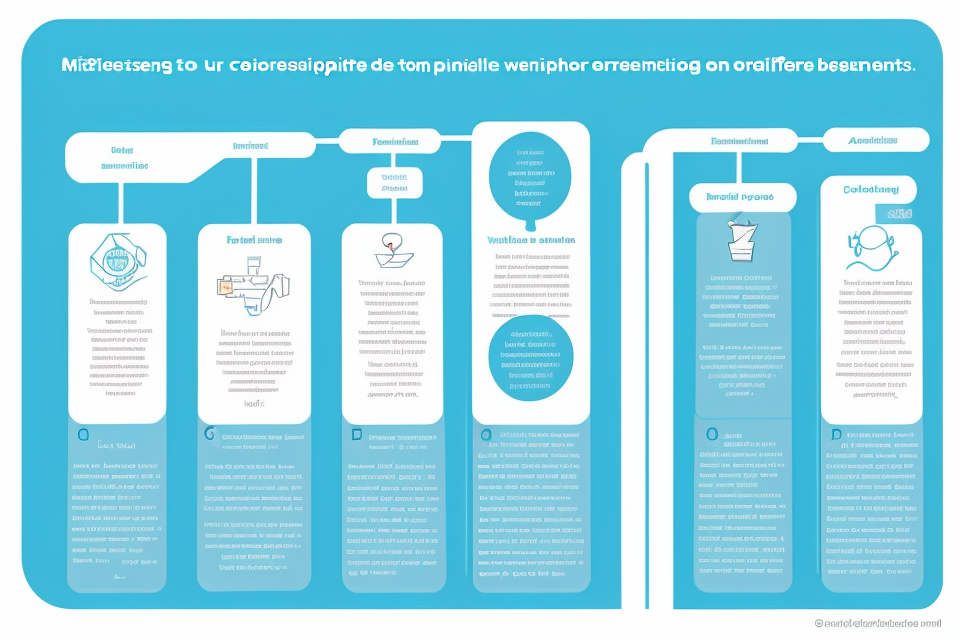
Are you curious about the different levels of compatibility? Do you want to know how compatible you are with your partner or colleagues? Understanding the five levels of compatibility is essential for building strong relationships, both personally and professionally. In this comprehensive guide, we will explore each level of compatibility in detail, including what it means, how it affects relationships, and how to improve it. So, get ready to discover the secrets to building successful relationships and achieving your goals.
Introduction to Compatibility
What is compatibility?
- Definition of compatibility
Compatibility refers to the ability of different systems, devices, or software to work together seamlessly. It is the degree to which two or more components can interact and operate effectively in a specific context. Compatibility is crucial in various fields, including technology, science, and even in personal relationships.
- Importance of compatibility in various contexts
In technology, compatibility ensures that different devices and software can communicate and share data. In science, compatibility enables the integration of different theories and experiments. In personal relationships, compatibility plays a significant role in determining the success and longevity of the partnership. Compatibility is, therefore, a critical factor in ensuring smooth operations and positive outcomes in different contexts.
Common compatibility challenges
- Differences in opinions, values, and beliefs
- Political and religious beliefs
- Social and economic values
- Attitudes towards relationships and family
- Differences in interests, hobbies, and lifestyles
- Recreational activities and leisure time
- Diet and exercise habits
- Work and career goals
- Differences in communication styles and conflict resolution
- Active listening and empathy
- Assertiveness and setting boundaries
- Problem-solving and compromise
The 5 Levels of Compatibility
Level 1: Basic Compatibility
- Shared values and beliefs
- Similar interests and hobbies
- Good communication skills
Shared Values and Beliefs
Shared values and beliefs form the foundation of any healthy relationship. It is important for couples to have a common understanding of what is important in life, and what they want to achieve together. This can include values such as honesty, loyalty, and respect, as well as beliefs about religion, politics, and other important issues. When couples share similar values and beliefs, they are more likely to have a strong and lasting relationship.
Similar Interests and Hobbies
Having similar interests and hobbies is another important aspect of basic compatibility. When couples enjoy doing the same activities, they can spend more time together and have fun in a variety of ways. This can include anything from playing sports, to going to concerts, to cooking and gardening. Having shared interests can also help couples bond and create lasting memories together.
Good Communication Skills
Good communication skills are essential for any healthy relationship. When couples are able to communicate effectively, they can resolve conflicts and misunderstandings in a productive and respectful way. This can include active listening, expressing oneself clearly, and being open and honest with one another. Good communication skills can also help couples to understand each other’s needs and desires, and to build a strong and lasting connection.
Level 2: Emotional Compatibility
Ability to Share Emotions and Feelings
Emotional compatibility refers to the ability of two individuals to understand and share each other’s emotions and feelings. This level of compatibility is crucial for the growth and sustainability of a relationship. It involves being able to express one’s emotions openly and honestly without fear of judgment or rejection. When partners are emotionally compatible, they can support each other through life’s ups and downs, creating a strong bond that withstands the test of time.
Empathy and Understanding Towards Each Other’s Emotions
Empathy is a vital aspect of emotional compatibility. It involves putting oneself in another person’s shoes and understanding their emotions from their perspective. When partners are empathetic towards each other’s emotions, they can offer support and encouragement during difficult times. They can also provide comfort and reassurance when needed, fostering a sense of trust and security in the relationship.
Support and Encouragement During Difficult Times
Support and encouragement are crucial components of emotional compatibility. When partners are able to offer each other support during difficult times, they can help each other navigate life’s challenges. This support can come in many forms, such as providing a listening ear, offering advice, or simply being present during tough times. When partners feel supported by each other, they are more likely to feel confident in their ability to overcome obstacles and grow together as a couple.
Level 3: Intellectual Compatibility
In any romantic relationship, it is essential to have shared interests and values. However, intellectual compatibility is a level deeper than just having similar hobbies or preferences. It is about sharing a similar intellectual curiosity and being willing to learn from each other.
Shared Intellectual Interests and Curiosity
When two individuals have a shared intellectual interest, they are more likely to have engaging conversations and stimulating debates. They enjoy discussing new ideas and exploring different perspectives. They also have a willingness to learn from each other, which can help them grow as individuals.
Willingness to Learn from Each Other
Intellectual compatibility involves more than just having similar interests. It is also about being open to learning from each other. This means being willing to listen to different opinions and perspectives, even if they are not initially agreeable. It is about being open to change and growth, both as individuals and as a couple.
Discussion of Ideas and Opinions
Having intellectual compatibility means that couples can engage in meaningful discussions about various topics. They can discuss their opinions and ideas without fear of judgment or criticism. This level of compatibility helps couples to develop a deeper understanding of each other and strengthens their bond.
Overall, intellectual compatibility is an essential aspect of any romantic relationship. It is about having shared intellectual interests, being willing to learn from each other, and engaging in meaningful discussions. When couples have this level of compatibility, they are more likely to have stimulating conversations and grow as individuals and as a couple.
Level 4: Physical Compatibility
When it comes to relationships, physical compatibility plays a crucial role in determining the success and longevity of a relationship. Physical compatibility refers to the degree of attraction and chemistry between two individuals, as well as their similarities and differences in terms of physical intimacy preferences.
Shared Attraction and Chemistry
Shared attraction and chemistry are the foundation of physical compatibility. When two individuals are attracted to each other, they are more likely to be drawn to each other physically and emotionally. Chemistry is the intangible spark that ignites the flame of attraction, and it is often characterized by physical touch, gaze, and body language.
Similar Preferences in Physical Intimacy
Similar preferences in physical intimacy are also an important aspect of physical compatibility. This includes similarities in sexual practices, frequency, and preferences. When both partners have similar preferences in physical intimacy, they are more likely to have a satisfying and fulfilling sexual relationship.
Good Sexual Compatibility
Good sexual compatibility is the third aspect of physical compatibility. This refers to the ability of both partners to communicate their sexual needs and desires, as well as their willingness to explore and experiment with new sexual experiences. When both partners are sexually compatible, they are more likely to have a fulfilling and satisfying sexual relationship.
It is important to note that physical compatibility is not the only factor in a successful relationship, but it is an important one. When both partners have a strong physical connection, it can serve as a foundation for a long-lasting and fulfilling relationship.
Level 5: Spiritual Compatibility
Shared Spiritual Beliefs and Practices
Spiritual compatibility is a crucial aspect of a healthy and fulfilling relationship. When two individuals share similar spiritual beliefs and practices, they are more likely to have a deep and meaningful connection. This shared spiritual foundation provides a common language and understanding of the world, which can strengthen the bond between two individuals. It is important to note that this does not necessarily mean that both partners must follow the same religion, but rather that they respect and appreciate each other’s spiritual beliefs and practices.
Ability to Connect on a Deeper Level
Spiritual compatibility also involves the ability to connect on a deeper level. This means that partners are able to support each other’s spiritual growth and share a mutual understanding of the importance of spirituality in their lives. They are able to engage in deep conversations about spirituality and support each other in times of spiritual crisis or growth. This deeper connection can help to create a sense of trust and intimacy in the relationship, which is essential for long-term compatibility.
Support for Each Other’s Spiritual Growth
In addition to sharing spiritual beliefs and practices, spiritual compatibility also involves supporting each other’s spiritual growth. This means that partners encourage each other to explore their spirituality and engage in practices that support their personal growth. They also provide support and guidance during times of spiritual crisis or change. This level of support can help to create a sense of security and stability in the relationship, which is important for long-term compatibility.
It is important to note that spiritual compatibility is not the only factor in a successful relationship, but it can play a significant role in creating a strong and fulfilling connection between two individuals. By understanding and cultivating spiritual compatibility, partners can deepen their connection and support each other on their spiritual journeys.
Factors affecting compatibility levels
Compatibility is a complex phenomenon influenced by several factors. These factors play a crucial role in determining the level of compatibility between two individuals. Understanding these factors can help you assess your compatibility with others and improve your relationships. In this section, we will discuss the key factors that affect compatibility levels.
- Personality traits: One of the most significant factors that affect compatibility levels is personality traits. Each individual has a unique personality that is shaped by various factors such as genetics, upbringing, and life experiences. Compatibility between two individuals depends on how their personalities interact with each other. For example, extroverted individuals may find it easier to connect with other extroverted individuals, while introverted individuals may prefer to spend time with other introverted individuals.
- Life experiences: Life experiences also play a crucial role in determining compatibility levels. Each individual has unique life experiences that shape their perspective on the world. These experiences can include everything from childhood experiences to career choices. Compatibility between two individuals depends on how their life experiences align with each other. For example, individuals who have experienced similar challenges in life may find it easier to connect with each other.
- Cultural backgrounds: Cultural backgrounds also play a crucial role in determining compatibility levels. Each individual has a unique cultural background that shapes their values, beliefs, and behaviors. Compatibility between two individuals depends on how their cultural backgrounds align with each other. For example, individuals from the same cultural background may share similar values and beliefs, making it easier for them to connect with each other. However, individuals from different cultural backgrounds may face challenges in understanding each other’s perspectives and values.
Understanding these factors can help you assess your compatibility with others and improve your relationships. By considering these factors, you can identify areas of compatibility and areas where you may need to make adjustments to improve your relationship.
Recap of the 5 levels of compatibility
When it comes to understanding the different levels of compatibility, it’s important to note that there are five main areas that need to be assessed in a relationship. These areas include:
- Emotional Compatibility: This refers to the ability of both partners to understand and manage their own emotions, as well as to empathize with and support the emotions of their partner. Emotional compatibility is essential for building trust and intimacy in a relationship.
- Intellectual Compatibility: This refers to the ability of both partners to engage in meaningful and stimulating conversations, and to share similar interests and values. Intellectual compatibility is important for maintaining mutual respect and appreciation in a relationship.
- Physical Compatibility: This refers to the ability of both partners to feel comfortable and satisfied with each other’s physical presence, as well as to engage in sexual activity in a way that is satisfying for both partners. Physical compatibility is important for building a strong sexual connection in a relationship.
- Social Compatibility: This refers to the ability of both partners to navigate social situations together, and to feel comfortable introducing each other to their friends and family. Social compatibility is important for building a strong support system in a relationship.
- Life Partner Compatibility: This refers to the ability of both partners to support each other’s goals and aspirations, and to make joint decisions about important life events. Life partner compatibility is important for building a strong foundation of trust and mutual respect in a relationship.
Assessing these five levels of compatibility is crucial for building a strong and lasting relationship. It’s important to remember that no two people are completely compatible in every way, but by working together to improve in areas where there may be gaps, couples can build a stronger and more fulfilling relationship.
Final thoughts
The Importance of Being Open and Honest About Compatibility
- Recognizing the Value of Transparency: One of the most critical aspects of any relationship is being open and honest about compatibility. By being transparent about your thoughts, feelings, and needs, you can establish a strong foundation of trust and understanding. This can help to build a healthy and thriving relationship that is built on mutual respect and trust.
- Navigating Difficult Conversations: While it can be challenging to discuss issues of compatibility, it is essential to do so in order to maintain a healthy relationship. This may involve having difficult conversations about sensitive topics, such as communication styles, financial management, or parenting practices. By being open and honest about these issues, you can work together to find solutions that work for both partners.
The Need for Ongoing Communication and Effort to Maintain Compatibility
- The Importance of Communication: Communication is a crucial aspect of any relationship, and it is essential to continue to communicate openly and honestly with your partner as your relationship evolves. This may involve discussing changes in your relationship, expressing your needs and desires, and working together to find solutions to challenges that arise.
- The Role of Effort and Commitment: Maintaining compatibility in a relationship requires effort and commitment from both partners. This may involve making changes to your behavior, developing new skills, or seeking outside support when needed. By working together and making a commitment to each other, you can maintain a strong and thriving relationship.
The Potential for Growth and Development Through Compatible Relationships
- The Benefits of Compatibility: When two people are compatible, they have the potential to grow and develop together in ways that may not be possible in other relationships. This can involve sharing new experiences, learning from each other, and developing a deeper understanding and appreciation of each other’s strengths and weaknesses.
- The Importance of Personal Growth: In a compatible relationship, both partners have the opportunity to grow and develop as individuals. This may involve pursuing new interests, developing new skills, or taking on new challenges. By supporting each other’s personal growth, you can strengthen your relationship and build a stronger foundation for the future.
FAQs
1. What are the 5 levels of compatibility?
The 5 levels of compatibility refer to the different ways in which two individuals can be compatible with each other. These levels include: physical compatibility, emotional compatibility, intellectual compatibility, lifestyle compatibility, and spiritual compatibility.
2. What is physical compatibility?
Physical compatibility refers to the degree to which two individuals are sexually attracted to each other and able to engage in sexual activity together. It is an important aspect of a relationship, but it is not the only aspect.
3. What is emotional compatibility?
Emotional compatibility refers to the degree to which two individuals are able to understand and support each other emotionally. This includes being able to communicate effectively, share feelings and experiences, and provide emotional support to each other.
4. What is intellectual compatibility?
Intellectual compatibility refers to the degree to which two individuals share similar interests, values, and beliefs. This includes being able to engage in meaningful conversations, share ideas and perspectives, and appreciate each other’s intelligence.
5. What is lifestyle compatibility?
Lifestyle compatibility refers to the degree to which two individuals have similar habits, routines, and priorities. This includes factors such as work schedules, social activities, and household responsibilities.
6. What is spiritual compatibility?
Spiritual compatibility refers to the degree to which two individuals share similar beliefs and values related to spirituality and religion. This includes being able to support each other’s spiritual growth, share meaningful spiritual experiences, and understand each other’s beliefs.
7. Is physical compatibility the most important level of compatibility?
Physical compatibility is an important aspect of a relationship, but it is not the most important. The most important levels of compatibility are emotional and intellectual compatibility, as these are the foundation of a strong and healthy relationship. Physical compatibility is important, but it is not the only factor that determines the success of a relationship.
8. Can compatibility be improved over time?
Compatibility can be improved over time through effort and communication. It is important to regularly communicate with your partner and work together to understand each other’s needs and preferences. By doing so, you can strengthen your relationship and improve your levels of compatibility.


